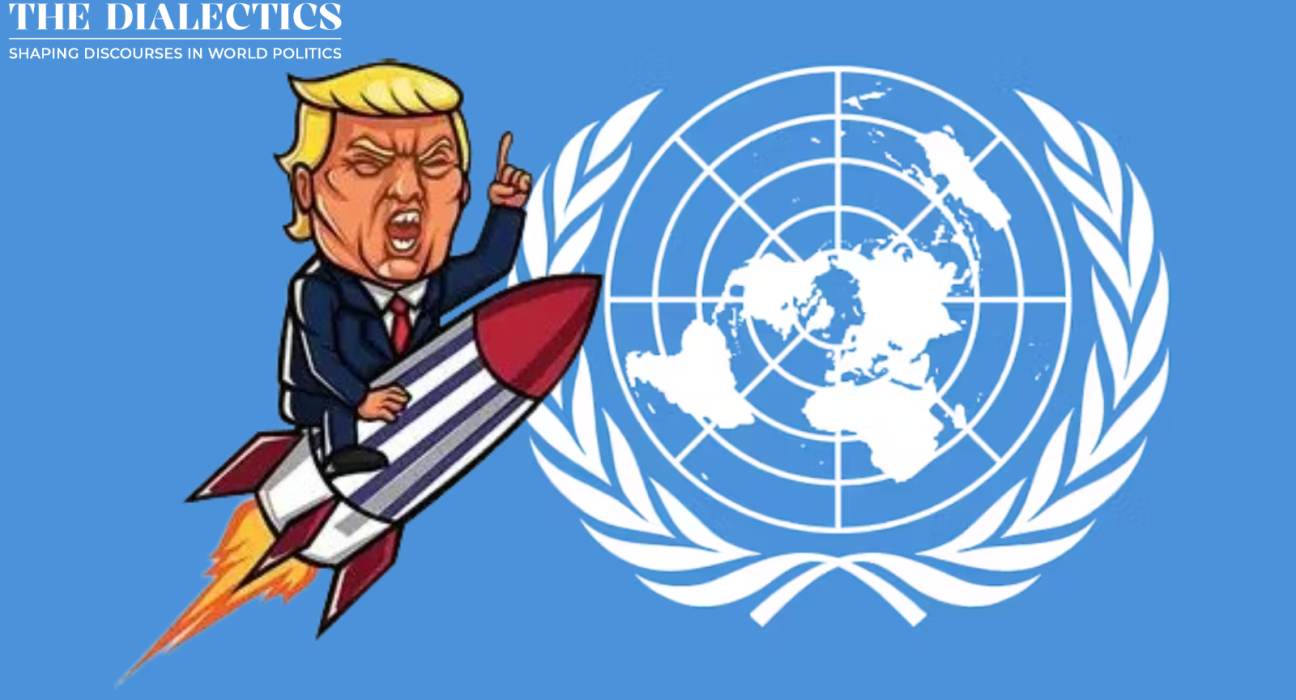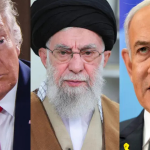In an era where war can be livestreamed and the explanation comes after the first drone strike, the question of legality in the international use of force has never been such a contested field, nor such an urgent one. Among the epicentres of global power and conflict is the ever-burning relationship between the United States and Iran. From nuclear face-offs to proxy wars in West Asia, sanctions regimes and killing, it is a packed theatre, with a short fuse.
With the heated rhetoric and occasional military skirmishing between the United States and Iran seemingly settling into a stand-off, one question repeatedly comes to mind: Would it be legal for the United States to go to war with Iran? This seemingly straightforward question is a complex tapestry of international law, national sovereignty, security imperatives and strategic ambiguity. And to answer it requires us to walk the tightrope between theory and realpolitik, law and power, norms and necessity.
The Legal Bedrock: UN Charter and the Use of Force
To start, let’s examine the legal framework that governs the use of force between states: the United Nations Charter. Article 2(4) of the Charter establishes a prohibition on the threat or use of force against the territorial integrity or political independence of any state. This is the foundation of post-WWII international legality and is a widely accepted jus cogens (peremptory norm).
There are only two legal exemptions to this ban.
- Self-defence in accordance with Chapter VII – Article 51, if an armed attack occurs,
- The Security Council authorisation to use enforcement in case of threats to peace, breaches of peace and acts of aggression. So, unless one of these two exceptions applies, then any U.S. military action against Iran would be presumptively unlawful under international law.
However, the law is seldom simple in international relations. So let’s unpack both exceptions in the context of recent U.S.-Iran dynamics.
1. The Self-Defence Argument: Elastic, but Constrained
Can the U.S. claim self-defence against Iran? The legal standard under Article 51 requires that the state invoking self-defence must be the victim of an actual or imminent armed attack. Precedents set by the International Court of Justice (ICJ), such as in the Nicaragua v. United States case, stress that self-defence must meet the criteria of necessity and proportionality.
Direct Armed Attack?
The United States and Iran have fought each other through a campaign of tit-for-tat attacks on military targets — militias in Iraq or Syria that the United States directly blamed on Iran, and then direct strikes by drones. But these usually happen in third countries, away from U.S. soil or Iranian territory itself. That complicates the self-defence argument.
The U.S. killed Iranian General Qassem Soleimani in Baghdad in 2020, alleging that he had presented an imminent threat to U.S. personnel. The legal community remained divided: pre-emptive strike or illegal assassination?
Anticipatory self-defence is not easily accepted under contemporary standards. As a matter of customary law, the Caroline Doctrine of 1837 allows pre-emptive force only when the threat is “instant, overwhelming, and leaving no choice of means and no moment for deliberation.”
Most scholars and states do not accept a broad pre-emptive doctrine.
In the case of Iran, without clear, credible, and publicly verifiable intelligence of an imminent attack on U.S. assets, any use of force would fail the necessity test. The risk is that elastic interpretations of self-defence become a pretext for strategic aggression.
2. Security Council Approval: Politically Infeasible
The second legal possibility- a UN Security Council Mandate- is far more unlikely. A military action against Iran would never be supported by permanent members Russia and China, with Veto power. In the past, they have mostly never been in support of the sanctions and have always vouched for diplomatic negotiations regarding the Joint Comprehensive Plan of Action, which is the 2015 Nuclear deal that the‘Trump administration exited in 2018.
This renders multilateral authorisation moot, forcing the U.S. to act unilaterally or through coalitions of the willing—an approach that lacks legal legitimacy even if it may carry political support.
The “Unwilling or Unable” Doctrine: A Grey Zone
In recent years, the US has embarked upon a controversial doctrine, ‘the unwilling or unable’ standard. It states that if a state, for example, Iran, supports or harbours forces attacking another state, for example, Israel, and refuses to prevent these attacks and continues being the breeding ground, then the victim state can use force within that territory. This doctrine has often been invoked by the US in operations in Syria, Yemen, and Iraq, where it was applied to non-state actors like the Iraqi. militias or Hezbollah.
Even though not universally accepted, this doctrine, to an extent, blurs the line between counter terrorism and armed conflict. Despite this doctrine being strategically appealing to the policymakers, it still remains legally dubious without the UNSC approval because, unlike ISIS or Al-Qaeda, Iran is a Sovereign state. Irrespective of the fact that if it supports proxy actors or not, it is not legally the same as being the locus of an armed attack.
Iran’s Nuclear Program: A Pretext or Provocation?
Another rationale frequently proffered is Iran’s nuclear program. If Iran approaches weapons capability, the U.S. (or Israel) can supposedly justify preventive action. But here, law and strategy split. Preventive war—a pre-emptive attack’to head off a future, theoretical threat—is not recognised in international law. Such an attack would constitute aggression, not self-defence. The invasion of Iraq in 2003 is a cautionary tale of what can happen when ”weapons of mass destruction” rationales prove to be imaginary.
Iran remains a signatory to the Non-Proliferation Treaty (NPT). While it has rolled back access to the IAEA and expanded uranium enrichment, it is yet to leave the treaty officially, test or weaponize nuclear material. Preventive attacks on Iranian nuclear sites, therefore, would breach international law unless Iran was clearly and in the near future posing a demonstrable threat of attack—a threshold yet to be passed.
Strategic Norms vs Legal Legitimacy
Critics may argue that international law is a fig leaf. Powerful states act based on realpolitik, not legal approval. True—but legality still matters. One, Domestic legitimacy. U.S. presidents need congressional and public support. Legal justification shapes public consent. Another being an International reputation. Unilateral aggression damages alliances and moral standing. Legality defines the difference between leadership and imperialism. And. finally, the Normative order. Eroding legal norms invites reciprocal behaviour. If the U.S. normalises force without authorisation, other states—Russia, China, India—may follow suit. The Iraq War cost the U.S. diplomatic capital, trust, and moral authority. A similar act against Iran could be even more destabilising, regionally and globally.
Conclusion: The Danger of Strategic Impunity
So, is it legally justifiable for the United States to attack Iran? In most possibilities, no. Not unless:
- The U.S. is directly attacked;
- There is a verified imminent threat;
- There is a clear link between Iran and the ongoing unlawful force
- Or the UN Security Council authorises it (which is unlikely).
Otherwise, any action like that will be against the UN Charter, international customary law, and likely establish treacherous precedents. That doesn’t preclude the U.S. from acting. But if it acts, the action will be based on strategic imperative, not legal certainty. And that leads us to a larger question: In a world where power frequently trumps right, is legality a constraint anymore, or merely an afterthought? This is not a legal question but a political and philosophical one, and the response could determine the future of war and peace in West Asia and beyond.





